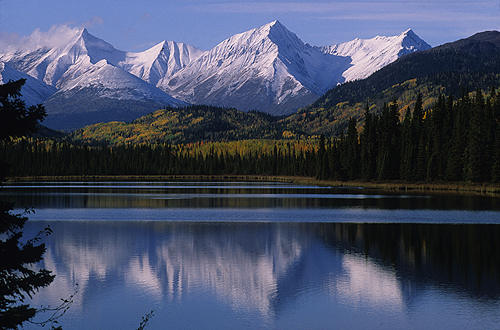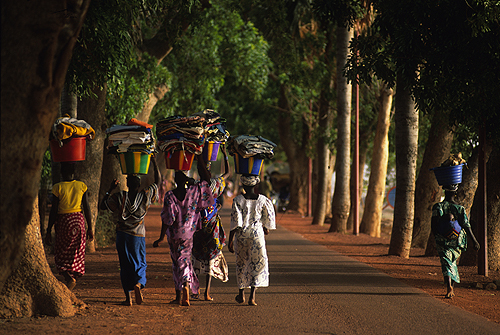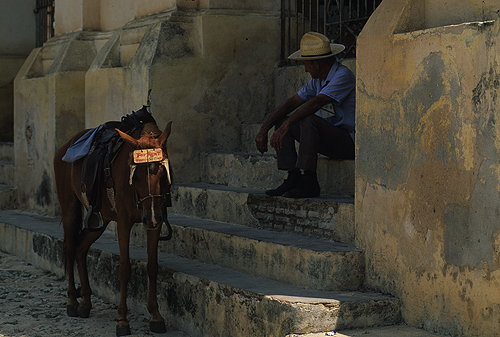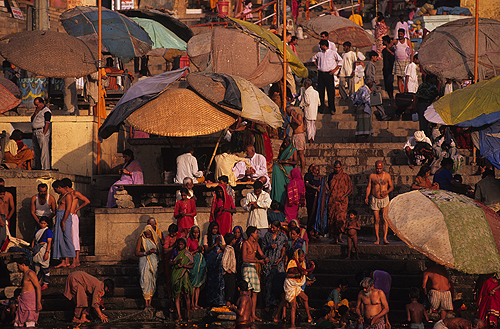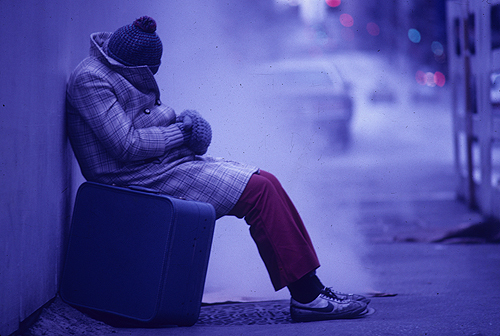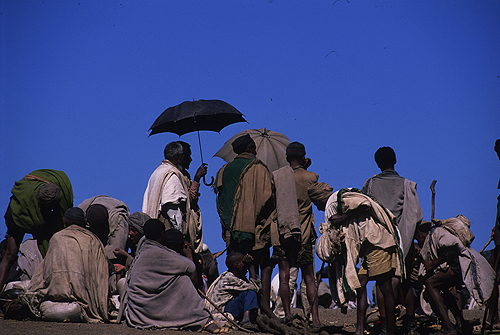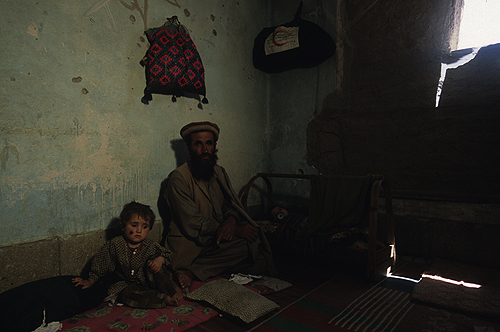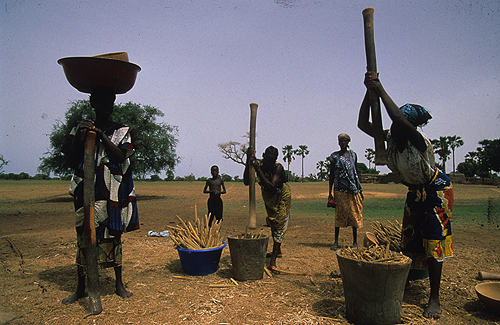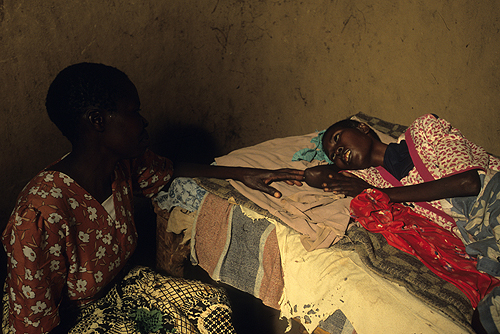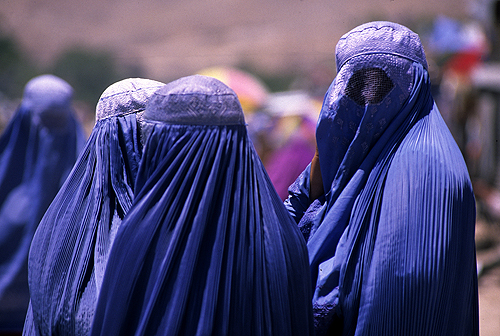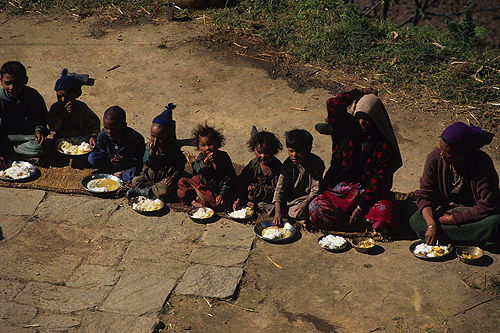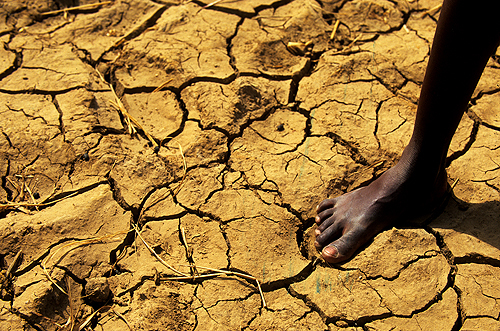
I know of a Dominican woman who crossed the United States frontier illegally, looking for a better life for her and her family in Puerto Rico. She paid a smuggler a couple thousand dollars to cross the treacherous Mona channel on a small wooden boat, known as a "yola," with fourteen other souls. After being lost at sea for some time she is unable to quantify, the man in charge threw a sick person overboard to stop his unnerving whining. They almost capsized in waters infested with sharks. When food supplies ran out, a mother offered her breast milk to her fellow travelers and saved them from dehydration. Miraculously, they made it.
She never meant to stay for life in U.S. territory. Her plan was to work as a maid, make some money and go back to her homeland to build a house at the countryside. But somewhere along the way her son was influenced by drug dealers and ended up in jail. She worked hard for two decades and legalized her status. Little by little she built a house back at home, where she would like to retire someday. The problem is she cannot leave because, in a way, she is in jail too, as she would never leave her son behind.
Boundaries and frontiers are an arbitrary thing. Right from the moment you are born, they determine your life expectancy and many other important factors such as health conditions, personal freedoms, the access to water, food and education you will have. We all live in a world defined by frontiers: physical, mental, personal, collective, moral, private, public, inner and outer space frontiers, just to name a few. There are all kinds of frontiers, some necessary and others completely obsolete. But in our interconnected world, where time and space have virtually shrunk in recent years, the matter deserves a fresh look. After all, the concept of a global village is an active process. Today, our frontiers intersect in an unprecedented manner. The new order forces us to shift our focus from action to reaction. At all times we must consider in advance the consequences of our actions, as the results are experienced without delay.
Still, those who trespass frontiers are often judged on a one-dimensional level that doesn't seem to work anymore. Who truly doesn't respect frontiers? The person that crosses a border to escape extreme poverty and violence, or those who refuse to help a fellow human in need? Who is ultimately responsible for contaminating the planet? The real person that consumes questionable products, or the abstract "corporate citizen" that creates them in the first place? Is it justified to allow private patents on medicine that can prevent pandemic disease? Is it OK to kill people in the name of peace? Is it justifiable to put profit above life? The answers to these questions will depend on your own intellectual frontiers, of course. Let's travel around the globe for a quick inventory of boundaries.
The stunning and sparsely inhabited Alaska, contains petroleum reserves of 11,000 million barrels in its subsoil. We consume around 20 million barrels per day, more than one fourth of the world's total. As a result, we generate 25 percent of the world's carbon emissions. Despite predictions that the U.S. will exhaust it's supply of oil in as little as forty years, the demand is on the rise, and it is predicted to increase at a rate of about 2 percent yearly. It is estimated that the Earth has roughly 25 years of known petroleum reserves.
The life of African women is very harsh. A hundred and thirty million of them have suffered the ablation of the clitoris, and every year there are two million more. This practice is common in thirty countries on girls from the ages of four to ten. It is not a Muslim tradition or an initiation rite; its sole purpose is to repress their sexuality.
Five decades of embargo have led to Cuba's biggest economic crisis in history. Many families break the law to make ends meet, for instance by selling cigars or beef in secret. Since the law punishes killing a cow with a 10-year sentence, people leave animals alongside the roads or railway tracks in the hope that a truck or train will kill them. The punishment for merely cutting up a dead animal is much lighter.
Set on the bank of the Ganges river, Varanasi is the great holy city of India. Since ancient times millions of devout Hindus have come to die here, because it guarantees them the end of the cycle of reincarnations and direct ascent to paradise. This frontier -- a gateway to heaven -- receives over 3,000 human bodies every year. Well-off families cremate their dead and sprinkle their ashes over the waters. But the poor can usually raise only a few rupees for a little fire wood, meaning that the meager flames merely scorch the skin of the body and the corpse is pushed into the river to join thousands of animal carcasses that further contaminate the waste waters arriving from towns and cities upstream. In contrast with the legend that speaks of "pure and uncontaminated water", the Ganges is intensely polluted and a prime source of infection of disease for one of the most populated countries on Earth.
Poverty is defined as a state of privation and a lack of basic necessities. According to the United States Census Bureau, the nation's poverty rate rose to 15.1 percent (46.2 million) in 2010, almost 5 percent more than in 2000. Roughly 50 million people cannot afford health insurance in the United States of America. If that is the situation in one of the richest nations of the world, what is left for those surviving in the third world?
Extreme poverty drives countries to the over-exploitation of their resources and the degradation of their farmland. Africa has lost over five million hectares of forest every year in the last ten years, and much of its land is now barren or semi-barren. The UN estimates that Sub-Saharan Africa will not be able to reduce its poverty by half until 2147.
According to the New York Times, at least 22 Afghan children under 5 have frozen to death this past month alone. The living conditions of thousands of war refugees in Kabul, Afghanistan, are terribly harsh. Obliged to live among the ruins, often without running water, electricity or heating and medical assistance, everyday they wage a battle simply to find food.
Women represent 43 percent of agricultural labor in the developing countries and produce most of the basic foods in Africa, Asia and the Caribbean. In general, they work 13 hours a week more than men. In a year, they transport over 80 tons of fuel, water and agricultural produce while men move barely 10 tons.
More than 34 million people now live with HIV/AIDS and more than two-thirds of the HIV/AIDS infected population live in sub-Saharan Africa, including 91 percent of the world's HIV-positive children. In 2010, an estimated 1.9 million people in the region became newly infected. An estimated 1.2 million adults and children died of AIDS, accounting for 67 percent of the world's AIDS deaths in 2010. -- amFAR.org
There is medicine to treat the illness, but it just doesn't reach those who need it most.
The burka, imposed by a traditionally patriarchal society, is designed to annul women's identity in public, because the only space she is allowed to partially express herself is at home. Women must always leave home, to go to the market or to work in the fields, covered up this way, and only a few men, their closest relatives, ever see their faces. Amnesty International condemns violence against women all around the world: one in three suffer from it. But many countries have no legislation on the matter and establish no punishment for rape. In Rwanda, 39 percent of the women were raped in the nineties alone.
The world's population is increasing but not its resources, and hunger is becoming a major problem. The UN's Food and Agriculture Organization (FAO) calculates that over 840 million people (of whom 300 million are kids and 11million of them living in rich countries) suffer from hunger. Of the 12 million children who die in the world every year, malnutrition kills 55 percent.
Only one percent of the water on the Earth is drinkable. Close to one billion people live without clean drinking water and adequate sanitation in three continents. Very soon, in 2025, one in four humans will live in places with no water to grow food.
With all these frontiers around us, it is inevitable to wonder what our plan is. To build a big wall around first world countries and pretend that nothing touches us? After all, we are in part responsible for many of the problems of the globe and we have plenty at home. When are we going to realize that we are all humans and all human issues concern us all? Can we get our act together and just do something? Or have we reached our ultimate frontier? There is no easy answer. There is no easy way. But those who get it have the responsibility to act. Now.
* This article was written in collaboration with Eduardo Rubio. All pictures by Eduardo Rubio.

